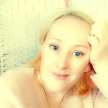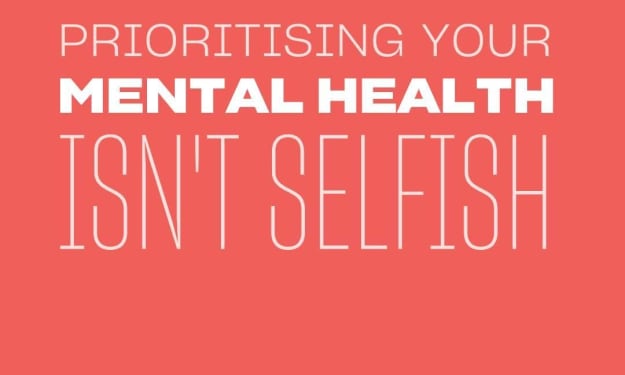Understanding Body Image
and how it’s all connected
I want to start by saying that I know how complicated body image can be. It’s a hard subject to tackle and a struggle for many. What makes it so difficult is that it’s so subjective. How I see myself is going to be a lot different to how you see me and when you are struggling to understand your relationship with your body or understand your emotional or disordered eating, your body image plays such an important part.
I first started studying body image and its effects in the early 2000s. It was my primary focus for many of my assignments at university. I’ve authored a research proposal examining the relationship between body image and exercise, and I’ve both provided a written submission for and spoken at a Parliamentary Inquiry into body image. This is something I care deeply about. I struggled for over 25 years with my body image and eating disorder. I was lucky but I know the devastating effects it has.
Today, I want to help you understand everything at play when it comes to your relationship with your body. As Spider-Man tells us, knowledge is power and the more you know and understand what is behind your relationship with your body and food, the more power you have to heal and change.
Background
One of the most interesting facts around body image is that it was first defined in 1935 by Paul Schilder who described it as “the picture of our own body which we form in our mind; that is to say, the way in which the body appears to ourselves.” This is still how we see body image at it’s core but this definition has been expanded on over the years to include our body image being subjective and constantly changing depending on the situation, and the effect of our attitude towards our bodies as well.
While there are four primary components of body image - perception, attitude, cognition, behaviour - they take in the following:
Our thoughts and beliefs around our body
Internal feelings and sensation about our body including vulnerability, tiredness, hunger and fullness
Feelings about our body in general (what we do or don’t like)
Our personal judgements about our bodies
Our awareness of other people's attitudes and feelings about how we look
All of these are factors that contribute to how we think, see, feel and act towards our bodies. When these are aligned, we are able to see our body realistically, we think positively about who we are and understand our worth, we feel good about who we are and we act with love and respect for ourselves. This is the ultimate goal - to actually love who we are, regardless of what our outer shell looks like. It’s about our own image, our own vision of who we are but for many of us, one or more of these areas is skewed. And this leads not only to disconnecting us from our bodies but it creates an environment where we turn to food or other ways to numb our emotions so we don’t have to face them.
Perception
Your perception of your body is at the core of how body image is defined. It is how you see yourself and your body. Your perception of yourself directly affects your mental, emotional and physical health because it affects your thoughts, your feelings and your behaviours. And it isn’t just about your body either. It’s how you see yourself in general. Do you see yourself as worthy? Do you see yourself as someone who is successful? Do you see yourself as capable? How do you see your role in your life and the lives of others? These are all valid questions that impact not only on your life but on your perception of your body.
How you perceive your body is the most subjective of all the components. Our minds love to play tricks on us and it’s here that the disconnection between what you see and what is real takes place. What you see when you look in the mirror or think of your body, isn’t necessarily the truth. Eating disorder sufferers are convinced that what they see in the mirror is so much bigger than how their body really is.
Your perception is what shapes everything else and if you want to heal your relationship with your body and overcome your body image issues, this is where you start. This is the first step. Being able to change the way you see yourself and your body, changes everything else.
Thoughts and beliefs (attitudinal)
This is perhaps the hardest component because it is the one that takes the most work to change. Your thoughts and beliefs are at the core of all that you do in your life and are closely linked to your perception. If you see yourself as successful it’s because you believe that you are. If you see yourself as someone who doesn’t deserve love, its because you believe that to be true.
Your thoughts and beliefs don’t just form overnight. They take years. Years of being told stories of who you are. Years of being either put down or raised up. Years of being criticised or supported. What you have come to believe about yourself is born from your family, your friends, your partners… it comes from the story you are carrying about yourself.
The biggest challenge here, is if you see the point in healing. For some of us, we are so rooted in the belief that we are unworthy, undeserving and unlovable that we just can see the point in trying to change. We don’t see the point in healing or loving ourselves. If you don’t see the point is loving yourself or finding your worth, then you are going to keep putting yourself down. You will continue to use food to squash your emotions. You will continue to punish yourself for not being good enough. But if you can shift this mindset. If you can change your thoughts and beliefs and start to rewrite your story, you start to remember your power.
Feelings and emotions (cognitive)
Ah, feelings and emotions… the primary trigger for our body image, emotional eating and disordered eating. This is where we try to run. This is where we turn to behaviours that will help numb the pain and allow us to avoid our emotions. But healing this part of your body image, will heal so much else.
Your feelings towards yourself matter and much like your thoughts and beliefs, they are often based on what others tell you. Feelings can change in an instant. One minute you can be happy and feeling good about your body and the next, you are fighting the urge to eat everything you can because of the anger you are feeling.
Your feelings and emotions are what drive your emotional eating because sometimes we just can’t face or articulate what we are feeling. Sometimes, we are so broken from the stories and beliefs that we don’t even know how we feel and it’s this side of our body image that often drives us towards unhealthy relationships with people who don’t respect us or treat us badly because we feel that that is all we deserve. And it’s our feelings and emotions, that end up driving our behaviours.
Actions and behaviours
Outwardly, your actions and behaviours speak volumes. Not just about your relationship with your body but about who you are and what you believe in general about yourself and what you are worthy of.
I truly believe that being able to love and accept ourselves where we are at any given moment is the key to our worth. And I want to empower other women to truly love themselves. But there is a movement out there where too many women are saying they love and respect themselves but their actions are saying the opposite.
Think for a moment about the way you treat yourself. Do you practice daily or weekly self-care? Do you spend money on yourself? Do you nourish your mind and body with what it needs to be healthy? Do you speak kindly to yourself?
For most of us the answer is no. We might stand there talking about how we love who we are and how we know our weight doesn’t determine our worth. And for some of us that’s true. But when we follow up those words by sitting on the couch, surrounded by food because we hate how we look and are still single and aren’t living the life we want to live, then it’s all just words.
Body image isn’t about having the perfect body. It’s about feeling good about the body you have and what it’s capable of. It’s about believing in yourself and knowing your worth isn’t dictated by how you look or what you earn. It’s about seeing yourself as worthy and deserving and when you do, then your actions and behaviours reflect that. When you believe in your worth and love yourself, then you make time each day for yourself and to move your body. You eat what you know you need. You manage your emotions with healthy strategies and habits that don’t see you numbing what you feel. How you treat yourself says so much more than you know.
As you can see, with body image, everything is connected. How you see yourself is linked to your beliefs. Your beliefs influence your feelings and how you feel, influences your behaviours. Body image is complicated but when you start to understand the way in which your thoughts, feelings, actions and perceptions all come together, then you have the power to change. At any point you have the power to change either your beliefs, your perceptions, your feelings or your actions. You don’t have to spend any more time struggling with yourself and your body. You don’t have to rely on food to numb the pain of what you are feeling. You get to choose. And I hope by sharing this, you now have the knowledge to take back your power and heal your relationship with your body.
About the Creator
Emma Jayne Lions
Writer, artist, wife and mother. I am all this and more. I am all this and nothing. I am simply me, using words to better my world and my understanding of my place within it.







Comments
There are no comments for this story
Be the first to respond and start the conversation.